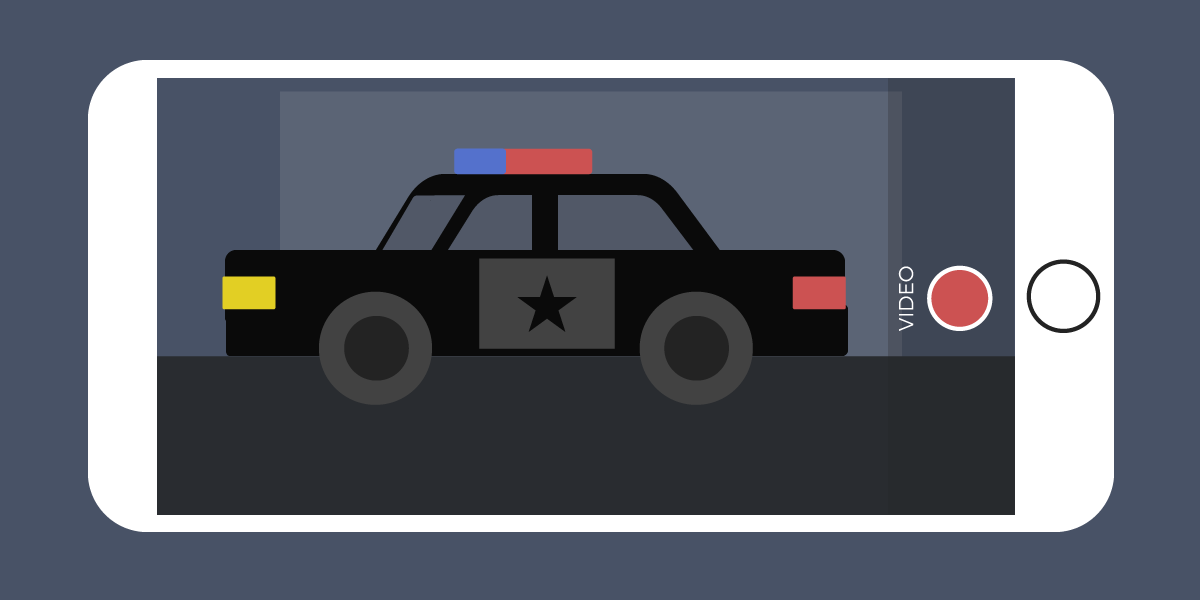
We are disappointed that the U.S. Court of Appeals for the Tenth Circuit this week dodged a critical constitutional question: whether individuals have a First Amendment right to record on-duty police officers.
EFF had filed an amicus brief in the case, Frasier v. Evans, asking the court to affirm the existence of the right to record the police in the states under the court’s jurisdiction (Colorado, Oklahoma, Kansas, New Mexico, Wyoming, and Utah, and those portions of the Yellowstone National Park extending into Montana and Idaho).
Frasier had used his tablet to record Denver police officers engaging in what he believed to be excessive force: the officers repeatedly punched a suspect in the face to get drugs out of his mouth as his head bounced off the pavement, and they tripped his pregnant girlfriend. Frasier filed a First Amendment retaliation claim against the officers for detaining and questioning him, searching his tablet, and attempting to delete the video.
Qualified Immunity Strikes Again
In addition to refusing to affirmatively recognize the First Amendment right to record the police, the Tenth Circuit held that even if such a right did exist today, the police officers who sought to intimidate Frasier could not be held liable for violating his constitutional right because they had “qualified immunity”—that is, because the right to record the police wasn’t clearly established in the Tenth Circuit at the time of the incident in August 2014.
The court held not only that the right had not been objectively established in federal case law, but also that it was irrelevant that the officers subjectively knew the right existed based on trainings they received from their own police department. Qualified immunity is a pernicious legal doctrine that often allows culpable government actors to avoid accountability for violations of constitutional rights.
Thus, the police officers who clearly retaliated against Frasier are off the hook, even though “the Denver Police Department had been training its officers since February 2007” that individuals have a First Amendment right to record them, and that “each of the officers in this case had testified unequivocally that, as of August 2014, they were aware that members of the public had the right to record them.”
Recordings of Police Officers Are Critical for Accountability
As we wrote last year in our guide to recording police officers, “[r]ecordings of police officers, whether by witnesses to an incident with officers, individuals who are themselves interacting with officers, or by members of the press, are an invaluable tool in the fight for police accountability. Often, it’s the video alone that leads to disciplinary action, firing, or prosecution of an officer.”
This is particularly true in the murder of George Floyd by former Minneapolis police officer Derek Chauvin. Chauvin’s criminal trial began this week and that Chauvin is being prosecuted at all is in large part due to the brave bystanders who recorded the scene.
Notwithstanding the critical importance of recordings for police accountability, the First Amendment right to record police officers exercising their official duties in public has not been recognized by all federal jurisdictions. Federal appellate courts in the First, Third, Fifth, Seventh, Ninth, and Eleventh Circuits have directly upheld this right.
We had hoped that the Tenth Circuit would join this list. Instead, the court stated, “because we ultimately determine that any First Amendment right that Mr. Frasier had to record the officers was not clearly established at the time he did so, we see no reason to risk the possibility of glibly announcing new constitutional rights … that will have no effect whatsoever on the case.”
This statement by the court is surprisingly dismissive given the important role courts play in upholding constitutional rights. Even with the court’s holding that the police officers had qualified immunity against Frasier’s First Amendment claim, if the court declared that the right to record the police, in fact, exists within the Tenth Circuit, this would unequivocally help to protect the millions of Americans who live within the court’s jurisdiction from police misconduct.
But the Tenth Circuit refused to do so, leaving this critical question to another case and another appellate panel.
All is Not Lost in Colorado
Although the Tenth Circuit refused to recognize that the right to record the police exists as a matter of constitutional law throughout its jurisdiction, it is comforting that the Colorado Legislature passed two statutes in the wake of the Frasier case.
The first law created a statutory right for civilians to record police officers (Colo. Rev. Stat. § 16-3-311). The second created a civil cause of action against police officers who interfere with an individual’s lawful attempt to record an incident involving a police officer, or who destroy, damage, or seize a recording or recording device (Colo. Rev. Stat. § 13-21-128).
Additionally, the Denver Police Department revised its operations manual to prohibit punching a suspect to get drugs out of his mouth (Sec. 116.06(3)(b)), and to explicitly state that civilians have a right to record the police and that officers may not infringe on this right (Sec. 107.04(3)).
* This article was originally published here
HELP STOP THE SPREAD OF FAKE NEWS!
SHARE our articles and like our Facebook page and follow us on Twitter!



0 Comments